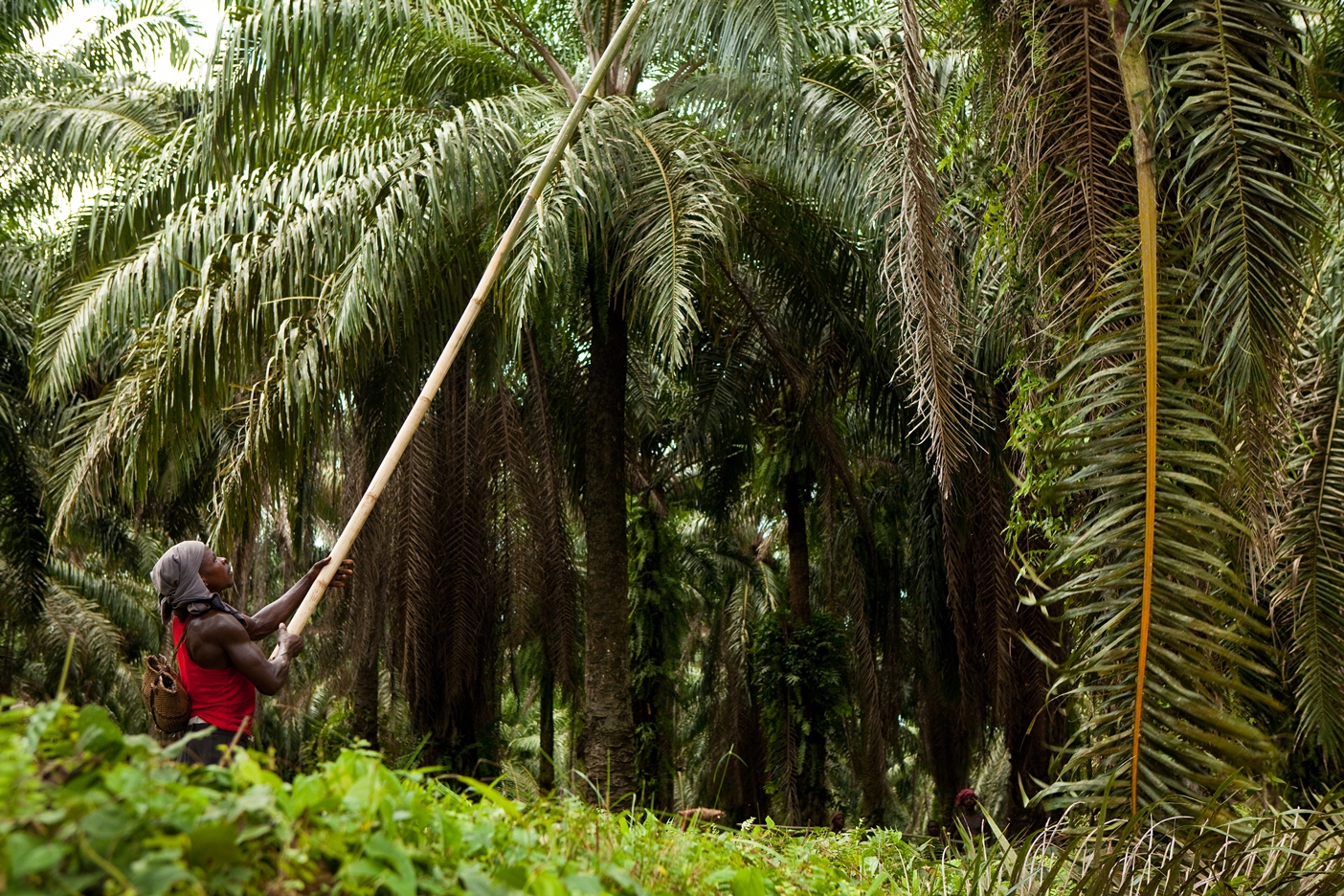Palm oil has a bad rep! Even though it is a vegetable oil of the kind recommended for a good diet, palm oil production and harvesting are on the sordid side. High demand for palm oil has triggered widespread deforestation in the warm climates where palm fields can realize the greatest yields. Deforestation in turn leads to loss of biodiversity and in particular habitat for some of the world’s most endangered species such as the orangutan, rhino and elephant. Greenpeace claims that palm oil suppliers have cleared more than 500 square miles of rainforest over the last five years. Palm oil plantations now cover more than 27 million hectares (66.7 million acres) around the world.
The global palm
oil market was estimated at 75 million tons in 2019 and is projected to grow by
2.3% in volume over the next five to seven years. Who could possible eat so much palm oil? As it is about half of the palm oil produced
in the world is used for biofuel and additives for cosmetics and soaps. Unfortunately, biofuel made from palm oil
grown on deforested land actually releases more greenhouse gases into the
atmosphere than burning an equivalent amount of fossil fuel.

The call for ethically grown palm oil has gone up loud and clear. Feronia, Inc. (FRN: TSX.V) answered, touting its palm oil product as free of deforestation. Feronia’s three palm plantations are located in the Democratic Republic of Congo on what they describe as brownfield sites. The company acquired the plantations in 2009 from Unilever, which had been the beneficiary of oil palm operations started along the Congo River by Belgian colonialists in the early 20th Century. Thus by the time Feronia got hold of them, the oil palm plantations were indeed brownfields. Make no mistake about it, massive deforestation was needed to establish the plantations in the first place.
Feronia entered
the palm business in 2009, and used its ethical palm oil story to take its
common stock public on the Toronto Stock Exchange. The stock reached a historic high price of
CN$4.40 in 2012. Unfortunately, by early
2014, the stock slipped below CN$1.00 and now languishes in pennies per
share. Operational missteps and
financial mismanagement made it necessary to secure highly dilutive equity
investments from the African Agriculture Fund and several other foreign
investment groups from around the world.
The new
resources apparently went down the same drain as the start-up capital. In July 2020, Feronia sold its oil palm
operating subsidiary to an African investor group that promised to invest US$10
million for working capital. The sale was part of a restructuring plan entered
into earlier in 2020.
In 2019, Feronia
produced 41,024 metric tons of palm oil at its ‘brownfield’ plantation, just 1%
more than the previous year. Along with
fruit production, the palm oil earned CN$29.7 million in revenue. Excluding a non-cash charge totaling CN$80
million for impaired assets, the company reported a net loss of CN$11.1
million. These dismal results and a
highly leveraged balance sheet triggered changes in the boardroom. A non-executive director has taken over as
chief executive officer. Several other
directors, including the chairman of the audit committee, also resigned.
Whether
Feronia’s restart under new leadership will lead to financial security is still
to be determined. In the meantime, high
demand notwithstanding, it seems a highly risky proposition to take a position
in Feronia for stake in ethically grown palm oil.
Neither the author of the Small Cap Strategist web
log, Crystal Equity Research nor its affiliates have a beneficial interest in
the companies mentioned herein.
No comments:
Post a Comment